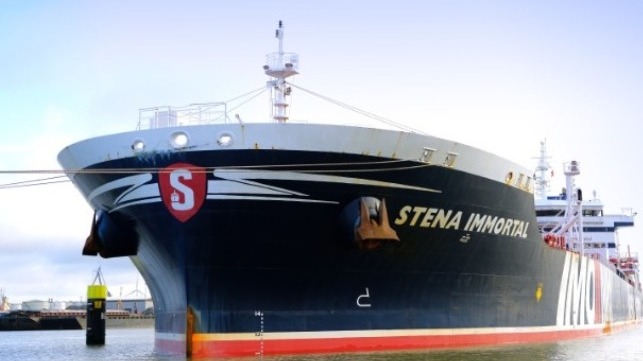 Stena Immortal recently completed a voyage fueled 100% by biofuel
Stena Immortal recently completed a voyage fueled 100% by biofuel
BY THE MARITIME EXECUTIVE 06-22-2020 02:26:24
Following a successful biofuel trial, Stena Bulk announced that it is introducing a new low-carbon shipping option for customers. According to the company, offering low-carbon shipping options is an ambitious initiative, but provides an immediate opportunity to reduce the environmental footprint of its tanker operations and provide customers an opportunity to benefit from these initatives.
Implemented through a carbon-offset program, customers will have options ranging from 20 to 100 percent biofuels. The biofuel will be used within the Stena fleet, but because the company cannot confirm fuel availability on a specific route, customers will instead contribute to the overall cost of using biofuel and receive carbon credits. By structuring the offering this way, Stena Bulk says customers can make use of the low-carbon shipping options while it also guarantees that the operation is performed without any disturbance to the shipment.
In announcing its program to provide customers with carbon offsets, Stena Bulk joins a growing list of shipping seeking to provide these alternatives to their customers. MSC recently announced its program where shippers compensate for the emissions generated from the transportation of their cargo by financially contributing to emission reduction programs being conducted around the world.
In April, Stena Bulk tested bio-fuel operations conducting a trans-Atlantic voyage operating totally on biofuel aboard the 49,646 deadweight ton (dwt) MR tanker Stena Immortal. The BFO, created by GoodFuels Marine and derived from forest residues and waste oil products, was loaded at the Port of Rotterdam. During the voyage, it was tested in tanks, storage, and was burned in the engines.
In announcing this new program, Stena Bulk noted that it believes biofuel has the potential of putting shipping on the trajectory towards IMO’s greenhouse gas reduction targets, without having to wait for new technology and zero-carbon fuels to emerge as commercially viable options. GoodFuels reports that biofuel reduces CO2 and SOX greenhouse gas emissions by 83 percent.
“This type of fuel is one step in many combined sustainable solutions that need to be considered and can be used today,” said Erik Hånell, President and CEO of Stena Bulk.” The company also recently unveiled designs for its IMOFlexMAX vessel, an environmentally friendly product tanker concept. Fitted with Flettner rotors and solar panels to harvest energy from wind and sunlight, the vessel will be powered by efficient dual-fuel engines that can run on LNG as well as conventional low-sulfur fuels to reduce greenhouse gas emissions by more than 25% compared to modern product tankers.
source: www.maritime-executive.com


